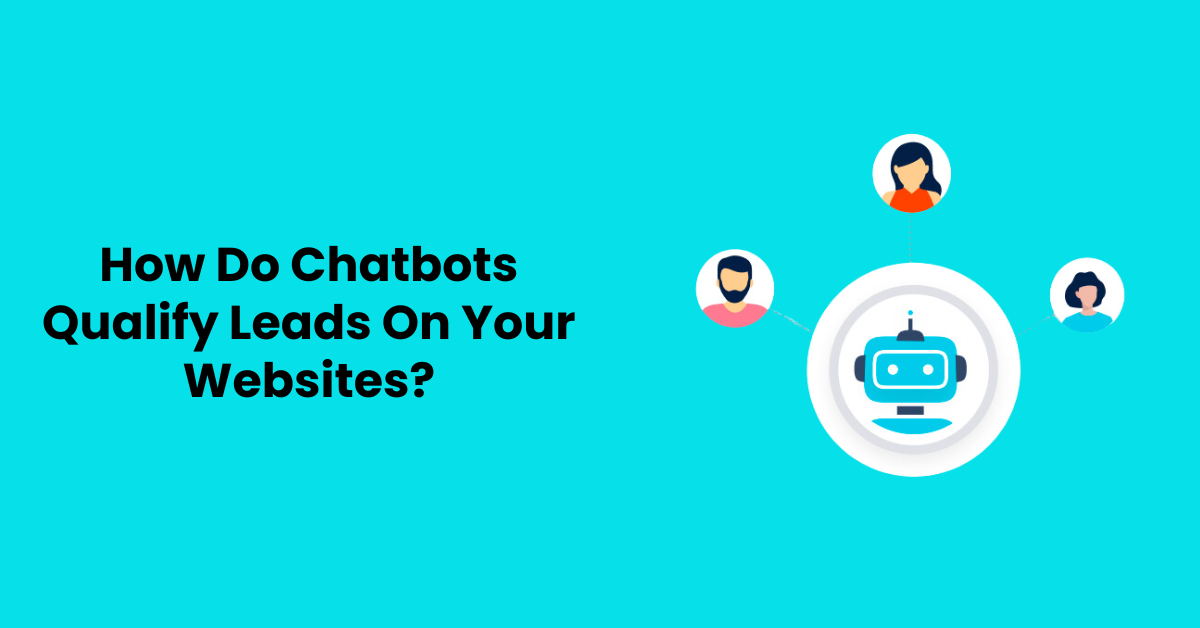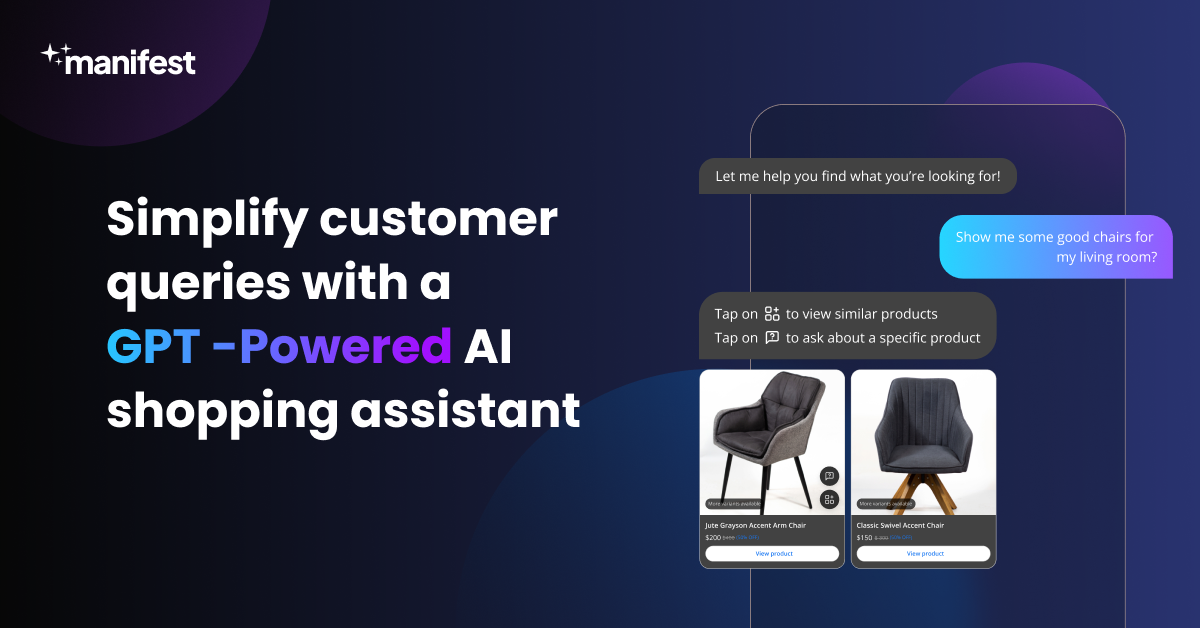How Do Chatbots Qualify Leads On Your Websites?

Websites are lively markets for potential clients, but separating casual browsers from serious prospects may be like digging for gold. Enter the chatbot, your steadfast digital helper with a talent for lead qualifying. Forget clunky forms and bland pleasantries; these AI-powered conversationalists engage visitors, collect critical information, and identify the most promising leads, all while allowing you to focus on completing business. But how do these bots perform their magic? Dive into this blog article to learn how do chatbots qualify leads on your websites, from strategic questions to tailored interactions. You'll discover how to use AI to transform your website into a lead-generation machine, keeping your sales funnel full with high-quality prospects.
Introducing Lead Qualification By Chatbots
Lead qualification via chatbots is the process of employing AI-powered qualified chatbot to automatically interact with website visitors, gather information about their needs and interests, and determine their suitability for your product or service. Consider having a salesman on your website 24 hours a day, seven days a week, asking qualifying questions and separating tire kickers from hot leads.
How Do Chatbots Qualify Leads?
Lead management chatbot have become valuable tools for businesses looking to streamline their lead generation and qualification process. But how exactly do these AI-powered conversational AI lead scoring turn website visitors into hot leads? Let's dive deep into the magic behind qualified chat bot lead qualification:
1. Initiating Engagement and Building Rapport
- Chatbots greet qualify customers proactively, making them feel welcome and acknowledged. This initial interaction sets the tone for a natural and helpful conversation.
- Some bots personalize greetings based on user behavior or data, creating a sense of recognition and connection.
- Chatbot for Lead Generation Interactive welcome messages or prompts urge visitors to participate and initiate the conversation.
2. Asking Strategic Questions
The core of lead qualification lies in the questions the lead generation chatbots asks. These questions are carefully crafted by marketing and sales teams to:
- Uncover needs and pain points: Understanding the visitor's challenges and goals helps assess their fit for your product or service.
- Gather key information: Questions about budget, timeline, decision-making authority, and industry paint a complete picture of the potential lead.
- Gauge buying intent: Strategic questions can differentiate casual browsers from serious prospects by identifying keywords indicating purchase interest or urgency.
3. Analyzing Responses and Scoring Leads
- Chatbots don't just collect answers; they analyze them using Natural Language Processing (NLP) and various scoring models.
- NLP extracts essential information from the user's responses, like mentions of specific features, competitors, or budget ranges.
- Scoring models assign points based on pre-defined criteria, such as how closely the user's needs align with your ideal customer profile or the urgency expressed in their responses.
- Leads with higher scores are considered "hot" and prioritized for further engagement by sales or marketing teams.
4. Utilizing Different Conversation Techniques
Beyond basic questions, chatbots can employ various techniques to qualify leads:
- Conditional branching: The conversation flow adapts based on the user's answers, leading them down personalized paths to gather specific information.
- Hypothetical scenarios: Presenting simulated situations can reveal the user's decision-making process and their level of interest in your solution.
- Open-ended questions: Encouraging detailed responses provides richer insights into the user's needs and motivations.
5. Seamless Handoff to Sales or Marketing
Qualified leads are seamlessly routed to the appropriate team member or process. This could involve:
- Triggering email alerts or notifications for sales reps.
- Adding qualified leads to CRM systems for further nurturing.
- Initiating personalized follow-up campaigns based on the user's interests and score.
Additional Considerations
- Conversational tone and personalization: Chatbots should use natural language and tailor the conversation to match the user's tone and style.
- Data security and privacy: Ensure user data collected by the chatbot is handled securely and adheres to privacy regulations.
- Performance monitoring and optimization: Continuously monitor and analyze chatbot performance to identify areas for improvement and refine the qualification process.
By employing these strategies, chatbots can effectively filter website visitors, identify promising leads, and significantly improve your sales pipeline.
How Do Chatbots Qualify Lead Qualifying Questions Examples
Here are some examples of qualifying questions for different stages of the chatbot conversation:
Initial Engagement and Icebreakers
- "Hi there! I'm ( name of chatbot), your friendly chatbot assistant. How can I help you today?"
- "Welcome to our website! Are you browsing for general information or do you have a specific question?"
- "I noticed you were looking at our [product/service page]. Can you tell me what interests you the most?"
Understanding Needs and Pain Points
- "What challenges are you currently facing in your [industry/business area]?"
- "What goals are you hoping to achieve with [solution category]?"
- "What are your biggest frustrations with your current [solution/approach]?"
Gathering Key Information
- "What is your typical budget for [product/service type]?"
- "When are you looking to implement a new [solution]?"
- "Who are the key decision-makers involved in your purchasing process?"
Gauging Buying Intent
- "How likely are you to consider purchasing a [product/service] in the next [timeframe]?"
- "Have you researched other similar solutions in the market?"
- "What would need to happen for you to move forward with [solution]?"
Advanced Techniques
- "Imagine you've successfully implemented our [product/service]. What impact would it have on your business?"
- "If you could change one thing about your current [process/situation], what would it be?"
- "Let's say you have [budget constraint/time limitation]. How would you prioritize your needs in this scenario?"
5 Best Chatbot For Lead Generation
Choosing the best AI chatbot for lead generation depends on your specific needs and budget. Here are 5 top contenders with a brief overview of their strengths and weaknesses:
Manifest AI

Manifest AI is an AI-powered chatbot specifically designed for Shopify stores. It enhances the shopping experience by providing intelligent and personalized assistance to customers, effectively engaging them with a human-like touch. Manifest AI helps in streamlining the pre-purchase journey of customers, offering tailored product recommendations and answering queries, thereby increasing conversion rates and customer satisfaction. This tool is a valuable asset for e-commerce businesses looking to optimize their online customer engagement and support.
Strengths: Advanced AI and NLP capabilities, personalized and engaging conversations, custom chatbots with code-free builder, strong lead scoring and qualification features.
Weaknesses: Only limited to Shopify stores.
HubSpot Chatbot

The HubSpot Chatbot is a tool designed for lead generation on websites. It engages with site visitors in real-time, answering queries and guiding them through services or products. This chatbot efficiently captures visitor information, aiding businesses in building their customer base and understanding client needs better.
Strengths: Easy to use, integrates with HubSpot CRM, affordable for small businesses, offers live chat and chatbot options.
Weaknesses: Limited customization options, basic AI capabilities compared to others, might not be suitable for complex lead qualification.
ManyChat

ManyChat is a chatbot platform that specializes in lead generation for businesses. It allows companies to automate interactions with potential customers through popular messaging apps, efficiently capturing and nurturing leads. The platform provides tools to design interactive chat flows, helping businesses engage with audiences and gather valuable customer information, thereby streamlining the lead generation process.
Strengths: Excellent for Facebook Messenger marketing and lead generation, strong automation features, visual flow builder for building conversation paths.
Weaknesses: Primarily focuses on Facebook Messenger, limited website integration options, not ideal for complex B2B lead qualification.
Drift

Drift is a chatbot designed to enhance lead generation on websites by engaging visitors in real-time conversations. It automates the initial contact with potential customers, capturing their information and queries efficiently. By providing instant responses and tailored interactions, Drift helps businesses increase their chances of converting website visitors into qualified leads.
Strengths: Personalized conversations with AI and live chat agents, visitor tracking and insights, conversational marketing features beyond lead generation.
Weaknesses: Can be expensive for larger teams, complex setup and configuration, might have a steeper learning curve.
Tidio

Tidio is a chatbot platform designed for lead generation on websites. It engages visitors through automated conversations, capturing vital information and customer interests. Tidio helps businesses identify and nurture potential leads, streamlining the process from initial contact to conversion, thereby enhancing the efficiency of their online marketing efforts.
Strengths: Affordable and user-friendly, omnichannel chat support (website, Facebook Messenger, WhatsApp), lead qualification tools, analytics dashboards.
Weaknesses: Limited AI capabilities compared to others, basic customization options, might not be suitable for highly complex lead generation needs.
How Manifest AI qualify leads?
- Unanswered Queries: Initiates lead collection when the AI assistant encounters a question it cannot answer due to limited data.
- Interaction with AI Nudges: Collects leads when customers interact with AI prompts, such as those offering discounts.
- Discount Coupon Access: Before providing discount codes, Manifest AI requests personal details from customers, applicable for direct rewards or spinning wheel offers.
- Post-Conversation Collection: Gathers leads at the end of conversations, especially from customers giving positive feedback. Unhappy customers are directed to customer support.
- Mandatory Lead Collection: Offers brands the option to require lead collection before starting a conversation with the assistant.
- Product Recommendation Quiz: Collects leads when customers take a personalized quiz for tailored product recommendations. Details are requested before revealing the recommendations.
Conclusion
In conclusion, chatbots have transformed how organizations identify and nurture prospects on their websites. From pleasantries to insightful questions, these AI-powered assistants engage visitors, unearth vital information, and score potential buyers, delivering a steady stream of qualified leads to your sales staff. By using the power of chatbots and developing efficient qualifying tactics, you can change your website from a passive brochure to a dynamic lead-generation machine, guaranteeing that your sales funnel is brimming with high-quality prospects ready to convert.

.png)
